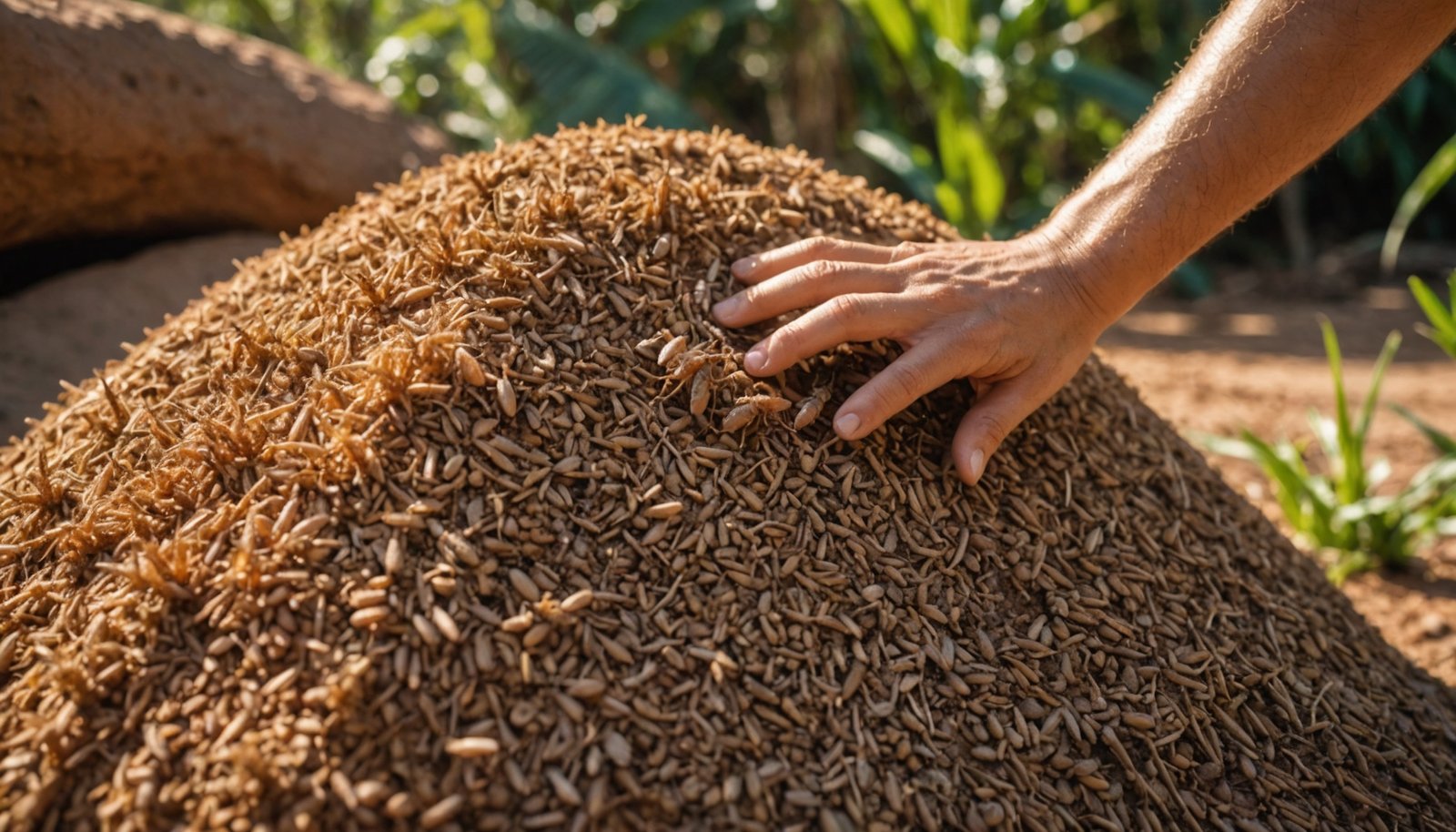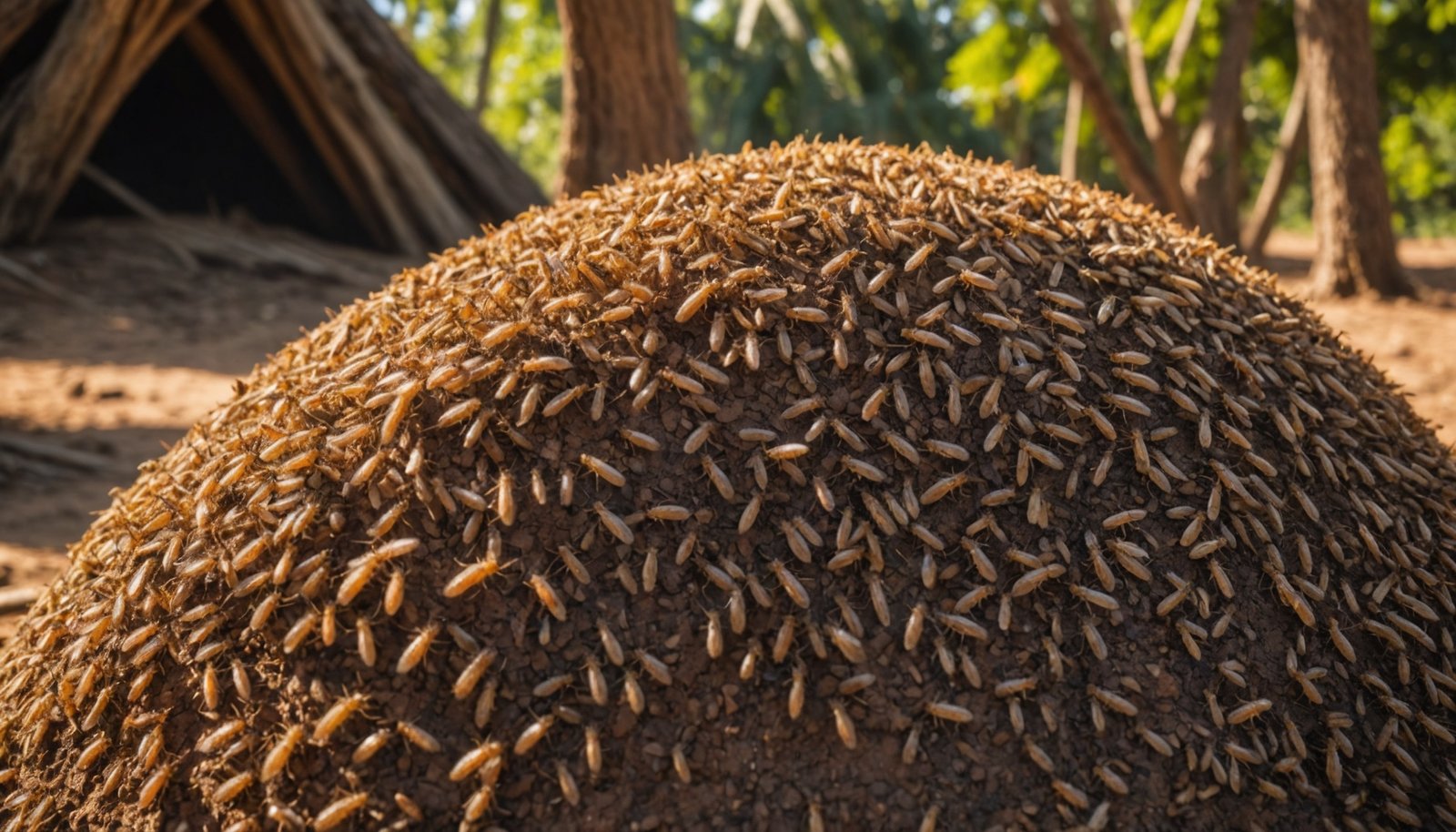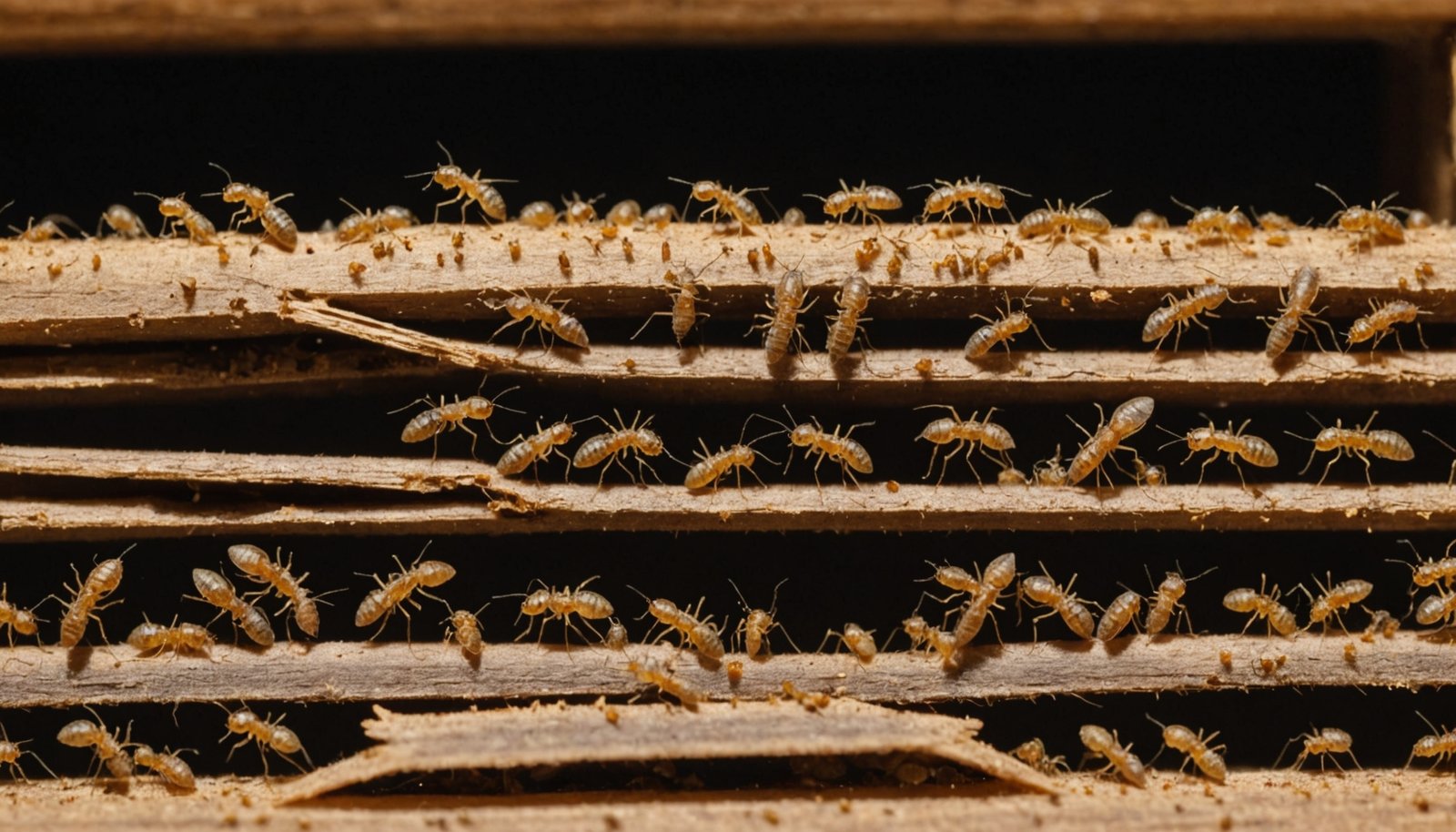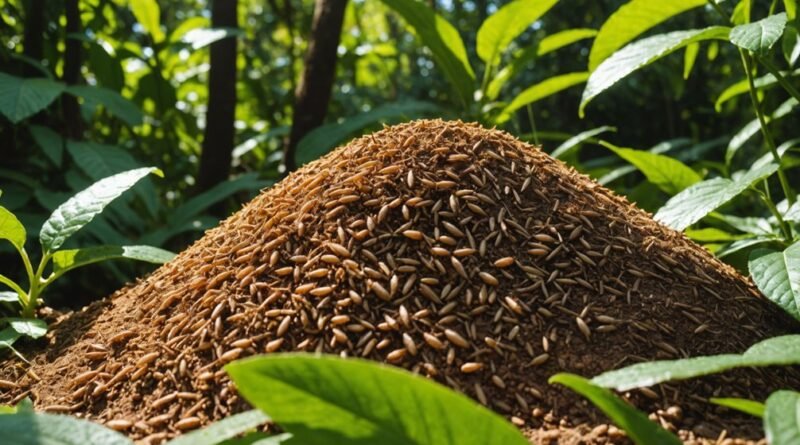Do Termites Carry Diseases That Affect Humans?
While termites don’t directly transmit diseases to humans, they can still affect your health in several ways. You might experience allergic reactions from their droppings and saliva, ranging from mild symptoms like itching to severe respiratory issues. Their activity can release harmful bacteria and fungi into your living space, and though rare, their bites may introduce infectious bacteria. Understanding the full scope of termite-related health risks will help you protect yourself and your family.
Key Takeaways
- Termites do not directly transmit diseases to humans, unlike mosquitoes or ticks.
- Exposure to termite droppings and infested materials can trigger allergic reactions ranging from mild to severe.
- Bacteria and fungi growing in termite-infested areas can cause respiratory issues and infections.
- Termite bites are rare but may introduce infectious bacteria that requires medical attention.
- Prolonged exposure to termite-infested materials can pose serious health risks, especially for those with respiratory conditions.
Understanding the Relationship Between Termites and Human Health

While termites aren’t direct disease carriers, they can still impact human health in several concerning ways. When you’re exposed to termite infestations, you face various health risks from harmful bacteria and fungi present in their droppings.
These insects’ presence can trigger allergic reactions in sensitive individuals, ranging from mild symptoms to severe responses requiring immediate medical attention.
Exposure to termite infestations can cause severe allergic reactions, making early detection crucial for protecting sensitive individuals’ health.
The damage caused by termites goes beyond structural concerns. Their activity releases particles from damaged wood and droppings that can worsen respiratory problems, particularly if you have asthma or bronchitis.
To protect yourself and your family, it’s essential to take proper precautions. Regular professional inspections can help identify potential infestations early, preventing both property damage and health-related issues before they become serious problems.
Common Health Concerns Associated With Termite Infestations

Although termites don’t directly spread diseases, their infestations can trigger several concerning health issues you shouldn’t ignore.
When you’re exposed to allergens from termite droppings and saliva, you might experience allergic reactions ranging from mild symptoms like itching and runny nose to severe cases requiring emergency care.
While termite bites are uncommon, they can introduce infectious bacteria into your skin, potentially leading to complications that need medical attention.
Your respiratory issues, such as asthma, may worsen due to airborne particles from wood dust and termite activity. If you’re sensitive to these environmental triggers, you’ll need to be particularly cautious around termite infestations.
That’s why it’s essential to address these health risks promptly through professional termite control to protect your well-being.
Medical Evidence on Termite-Related Illnesses

Research has documented significant medical evidence linking termite infestations to various health conditions. While termites don’t directly transmit diseases, you’ll face health risks from exposure to their droppings and infested materials.
If you’re sensitive to termite particles, you might experience allergic reactions ranging from mild skin irritation to severe anaphylactic shock.
Though rare, termite bites can introduce bacteria into wounds, potentially requiring medical treatment. You’re also at risk if you have respiratory issues, as contact with droppings and termite-related particles can trigger asthma and bronchitis symptoms.
To protect your health, it’s essential to prevent termite infestations or promptly remove the termites when discovered. The bacteria and fungi they harbor pose serious threats, especially in environments with prolonged exposure to infested materials.
Preventive Measures to Protect Your Health From Termites
To safeguard your health against termite-related risks, implementing preventive measures is essential. Regular termite inspections help identify infestations early, reducing your exposure to harmful microorganisms. You’ll want to minimize skin contact by wearing protective clothing and avoiding barefoot walking in termite-prone areas. Don’t forget thorough hand washing after handling infested materials to prevent potential transmission of pathogens.
| Preventive Action | Health Benefit | Implementation |
|---|---|---|
| Professional Inspections | Early Detection | Every 1-2 years |
| Protective Clothing | Minimize Exposure | During outdoor work |
| Hand Hygiene | Prevent Transmission | After wood contact |
| Footwear Protection | Reduce Bite Risk | In prone areas |
| Allergy Medications | Manage Reactions | Keep accessible |
Keep allergy medications handy if you’re sensitive to termite saliva or droppings, as allergic reactions can occur during exposure to infested areas.
Managing Health Risks During Termite Treatment
Taking action during termite treatment requires specific safety protocols to protect your health.
During treatment, you’ll need to wear protective clothing and gloves to minimize your exposure to harmful bacteria from termite frass and infested materials. If you have respiratory issues or allergies, you should be extra cautious as airborne particles can trigger allergic reactions.
Make sure you practice proper hand washing after handling any treated areas or materials to reduce infection risks. It’s wise to keep your allergy medications nearby during the treatment process in case you experience any sensitivity.
Remember that while termites don’t directly transmit diseases, their droppings can contain bacteria that might cause infections if they contact open wounds, so following these precautionary measures is essential for your safety.
Conclusion
While termites don’t directly transmit diseases to humans, you’ll want to be cautious about potential health risks from their presence. Their droppings and shed body parts can trigger allergic reactions and asthma in sensitive individuals. To protect your health, address infestations promptly, wear protective gear during cleanup, and ascertain proper ventilation. Remember that professional pest control offers the safest approach to termite management.

